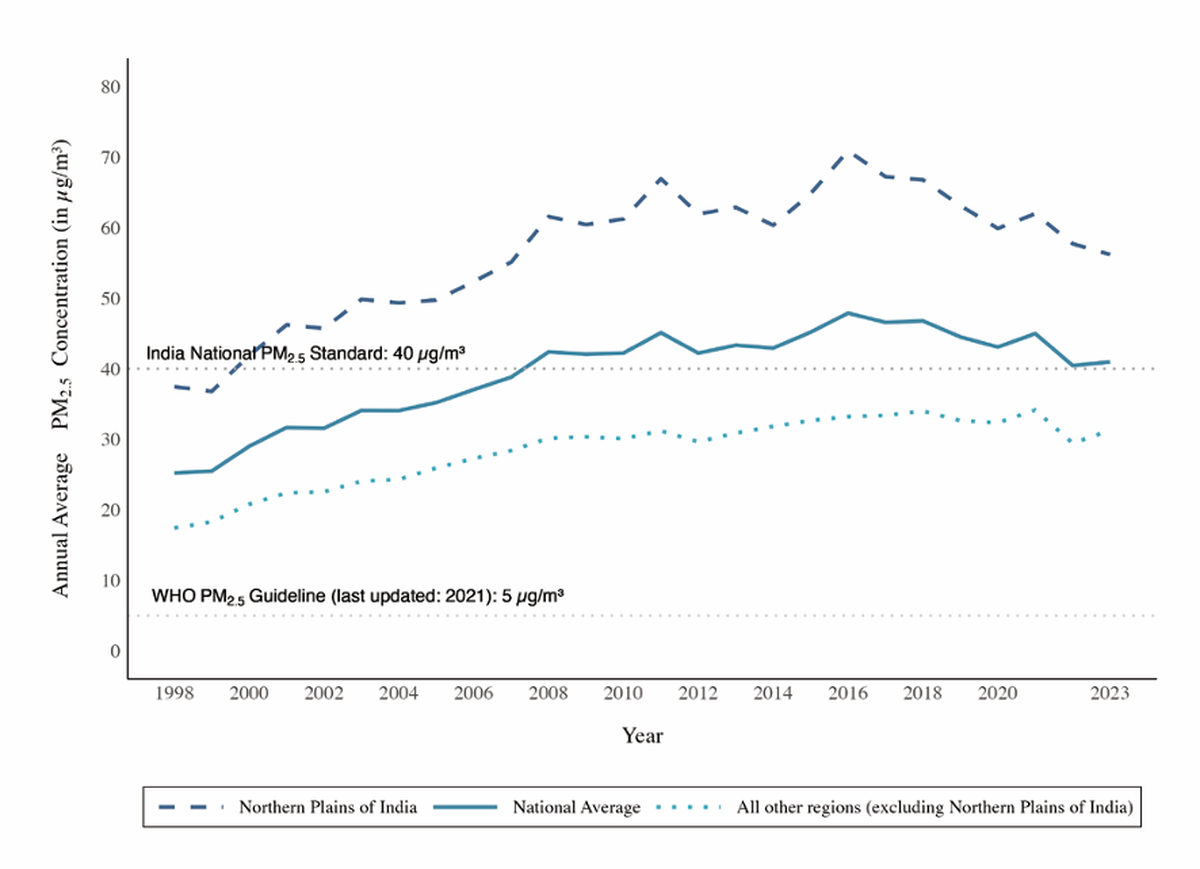Context:
Recently, the Air Quality Life Index (AQLI) 2025, released by the Energy Policy Institute at the University of Chicago (EPIC), has brought alarming attention to the severe health impact of air pollution in India.
What is AQLI?
The Air Quality Life Index (AQLI), developed by the Energy Policy Institute at the University of Chicago (EPIC), measures the impact of PM2.5 air pollution on life expectancy.
· It translates air pollution exposure into potential years of life lost, offering a powerful tool to understand the public health costs of dirty air.
· The 2025 edition is based on global pollution data from 2023.
Key findings:
The report identifies air pollution as India’s most severe health threat, reducing average life expectancy by 3.5 years.
· As per the report, 100% of India’s 1.4 billion population lives in areas where PM2.5 levels exceed the WHO guideline of 5 µg/m³. Even by India’s more lenient standard of 40 µg/m³, 46% of Indians are still exposed to unhealthy air.
· The Indo-Gangetic Plain remains the worst-affected region, with 544.4 million people living under hazardous air conditions.
· Delhi-NCR tops the list, where residents stand to lose 8.2 years of life if pollution persists. Other states like Bihar (5.6 years), Haryana (5.3 years), and Uttar Pradesh (5 years) also show significant life expectancy losses.
Health and Policy Implications
Air pollution causes more damage than malnutrition, unsafe water, or poor sanitation. The AQLI 2025 report emphasizes the need for urgent policy interventions.
· Even meeting India’s own PM2.5 standard could add 1.5 years to the average lifespan.
· Reducing pollution to WHO limits could improve life expectancy by up to 9.4 months in relatively cleaner areas.
Regional & Global Trends
· South Asia remains the most polluted region globally, with a 2.8% rise in PM2.5 levels in 2023.
· While countries like China have made progress through aggressive pollution control policies, India and Bangladesh continue to struggle.
· Globally, PM2.5 pollution is now the biggest external risk to human life expectancy, exceeding smoking, malnutrition, and infectious diseases.
Conclusion:
The AQLI 2025 findings are a wake-up call. With nearly half the population breathing air unsafe even by Indian standards, air quality reform is no longer optional—it is urgent. Strengthening the National Clean Air Programme (NCAP), investing in clean energy, and enhancing monitoring and enforcement must be national priorities to safeguard public health and economic productivity.







